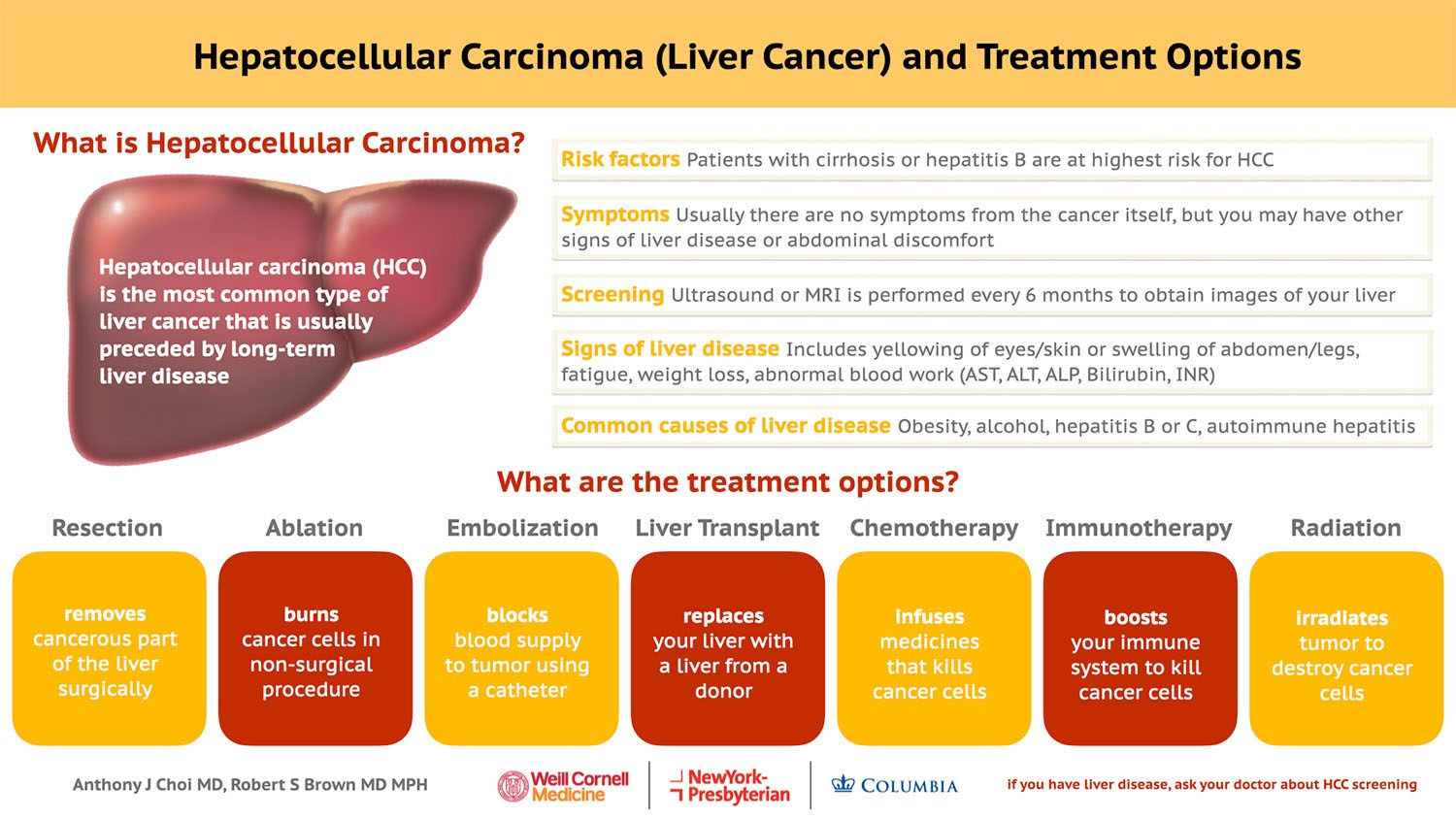Hepatocellular Carcinoma (Liver Cancer) and Treatment Options
Anthony J. Choi, MD and Robert S. Brown, MD
New York Presbyterian Cornell/Columbia
This presentation is an excerpt from the ALF 2021 Poster Competition. This competition showcases posters and a brief video created by early career investigators from across the country on six areas of educational focus: fatty liver disease, liver cancer, liver transplantation, pediatric liver disease, rare liver disease and viral hepatitis. Participants are tasked with translating complicated medical information into a poster which can be easily understood by patients or the public. Posters are reviewed by a formal panel of judges comprised of Medical Advisory Council members, Board Members and friends of ALF to select a winner in each category.
Hepatocellular carcinoma (HCC) is the most common type of liver cancer that is usually preceded by long-term liver disease. Patients with cirrhosis or hepatitis B are at highest risk for HCC. Usually there are no symptoms from the cancer itself, but you may have other signs of liver disease or abdominal discomfort. For screening, ultrasound or MRI is performed every 6 months to obtain images of your liver. Signs and symptoms of liver disease includes yellowing of eyes/skin or swelling of abdomen/legs, fatigue, weight loss, or abnormal blood work. Common causes of liver disease include obesity, alcohol, hepatitis B or C, and autoimmune hepatitis. There are many treatment options for HCC. Treatment will depend on the patient’s tumor number, size, and overall health. Treatment options include resection, ablation, embolization, liver transplantation, chemotherapy, immunotherapy, and radiation. A patient may require more than one type of treatment, and this will be tailored to each patient’s disease status.
Last Updated on December 1, 2021
Share this page






